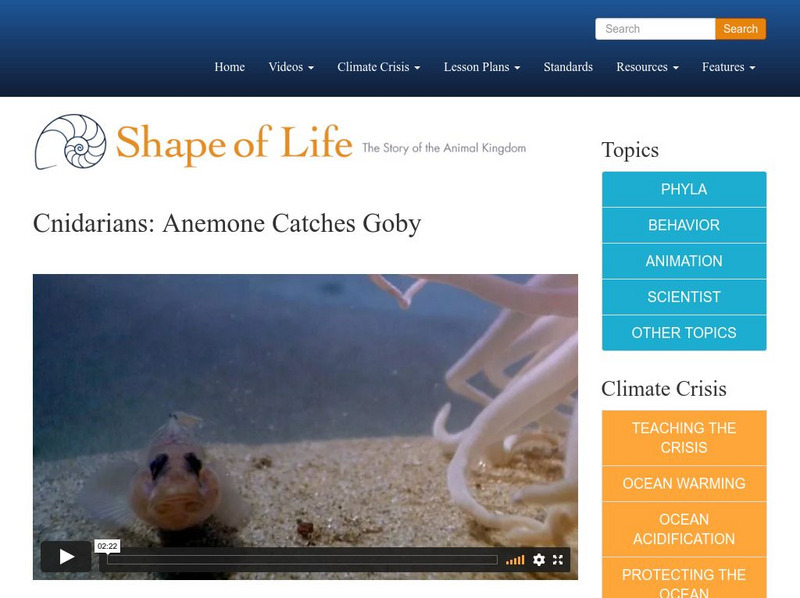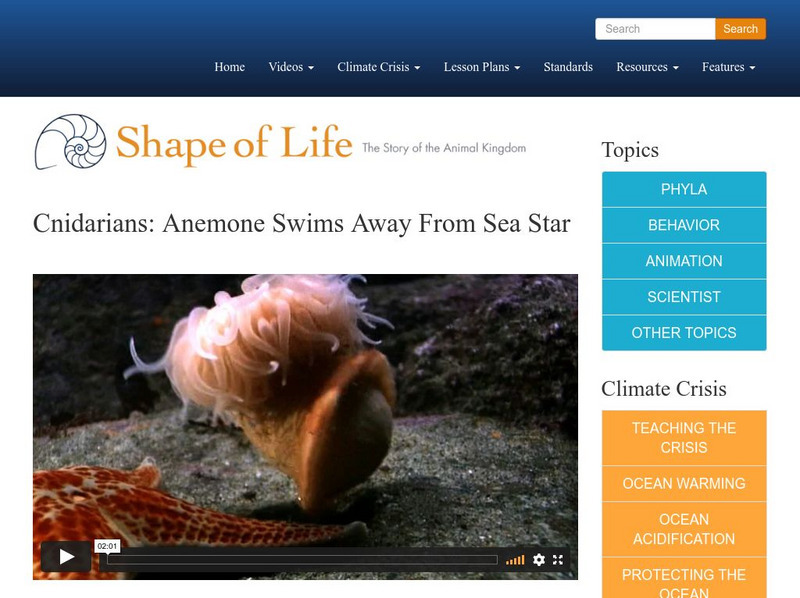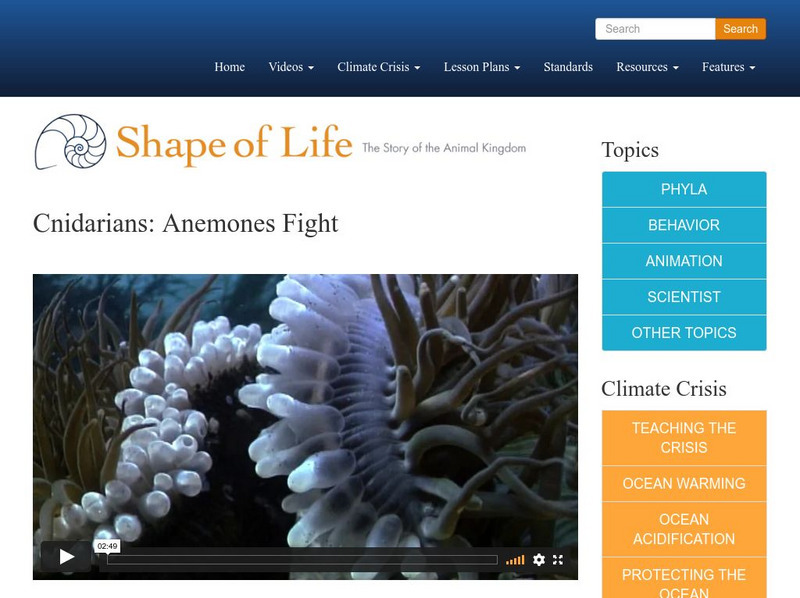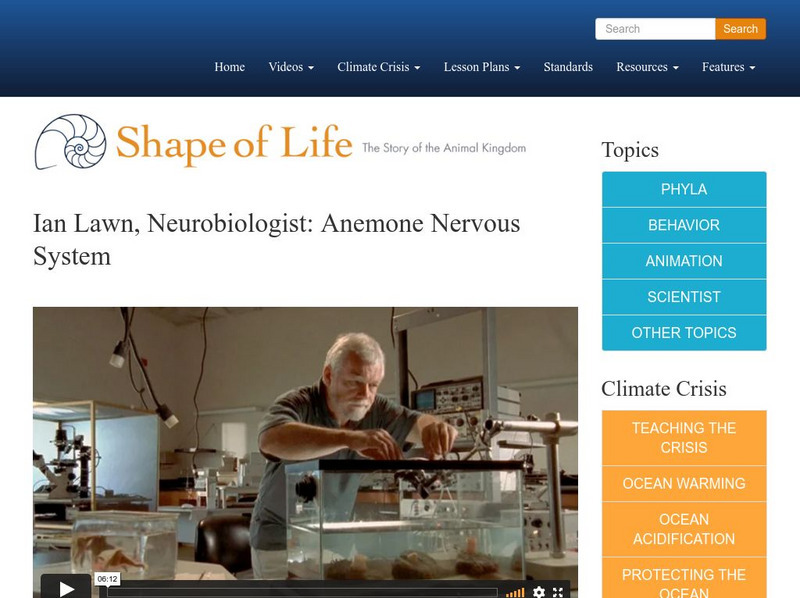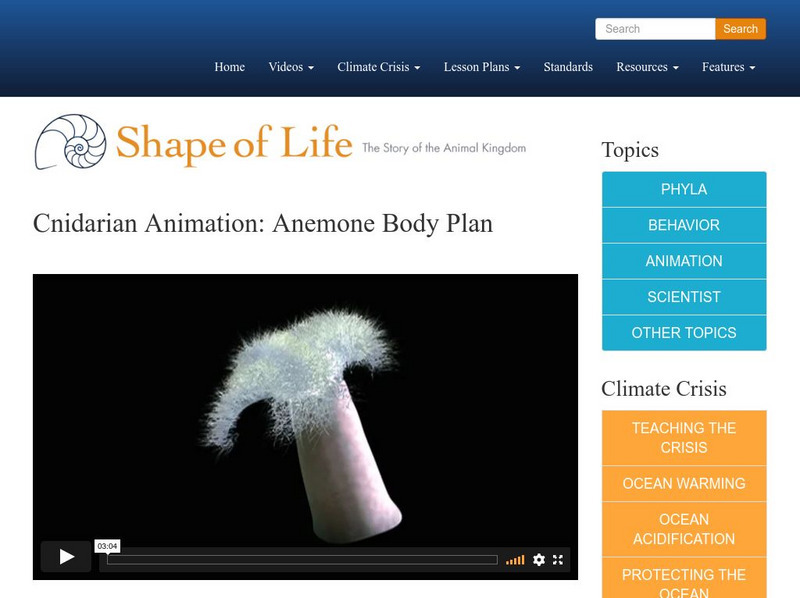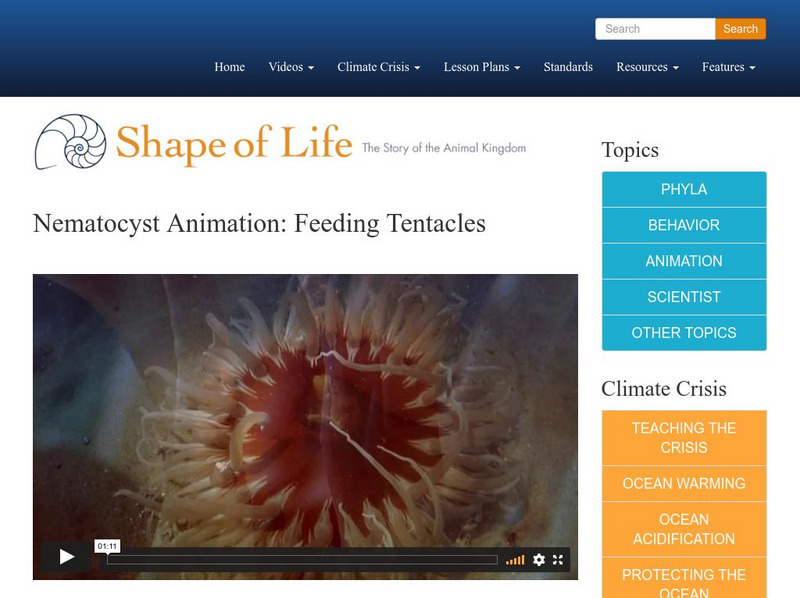Curated Video
Symbiosis
When individuals of different species live together in a close and long-term relationship. A Twig Science Glossary Film. Key scientific terms defined in just 60 seconds using stunning images and concise textual definitions. Twig Science...
Professor Dave Explains
Phylum Cnidaria Part 5: Class Anthozoa
Of the five major classes of phylum Cnidaria, we have just one more to cover, and that's Anthozoa. These are "flower animals", or polyps that lack a medusa stage, such as anemones, corals, sea pens, and more. Let's take a look at these...
Professor Dave Explains
Phylum Cnidaria Part 1: Introduction and Broad Characteristics
Next up for animal phyla is Cnidaria! This phylum contains jellyfish, sea anemones, corals, and all kinds of other organisms. This one is pretty meaty so it will take several tutorials. Let's start by getting through some information...
Sea Studios Foundation
Shape of Life: Cnidarians: Anemone Catches Goby
A video showing how an anemone catches it prey. A goby brushes against the tentacles of an anemone. The anemone catches its prey, the goby, using nematocysts lining its tentacles. Nematocysts shoot out like harpoons and contain deadly...
Sea Studios Foundation
Shape of Life: Cnidarians: Anemone Swims Away From Sea Star
Did you know anemones can swim? Watch this video that shows W=when attacked by a sea star, an anemone called Stomphia releases itself and contracts its body to swim away. [2:01]
Sea Studios Foundation
Shape of Life: Cnidarians: Anemones Fight
Two anemones aggressively fight using their specialized sacs loaded with nematocysts that contain toxins in this video. [2:49]
Sea Studios Foundation
Shape of Life: Ian Lawn, Neurobiologist: Anemone Nervous System
A video to investigate the origin of behaviors through the research of Ian Lawn. He studies an anemone, Stomphia, to try to understand how an animal with a simple body plan and nervous system is capable of complex behavior. Underwater we...
Sea Studios Foundation
Shape of Life: Cnidarian Animation: Anenome Body Plan
Cnidarians were the first animals to have a stomach, nerves and muscles. The anemone pulls water into its stomach to give its body rigidity so its nerves and muscles can work to create behavior. All animals have inherited the same basic...
Sea Studios Foundation
Shape of Life: Nematocyst Animation: Feeding Tentacles
An anemone's tentacles are lined with nematocysts that shoot out a microscopic barbed harpoon to catch prey. [1:11]
Sea Studios Foundation
Shape of Life: Nematocyst Animation: Fighting Tentacles
Two anemones fight for territory using special sacs (acrorhagi) full of nematocysts to inflict damage. [1:48]

